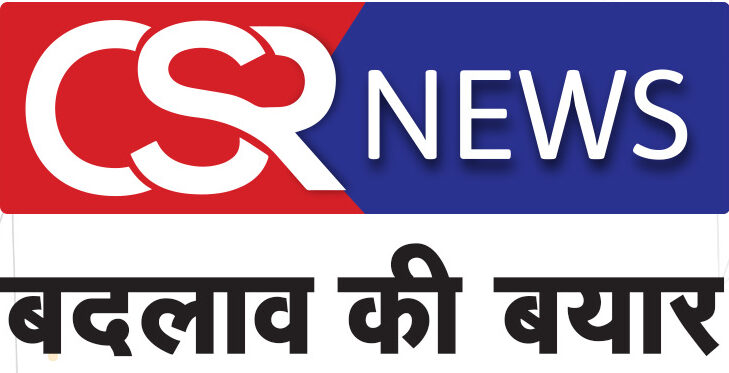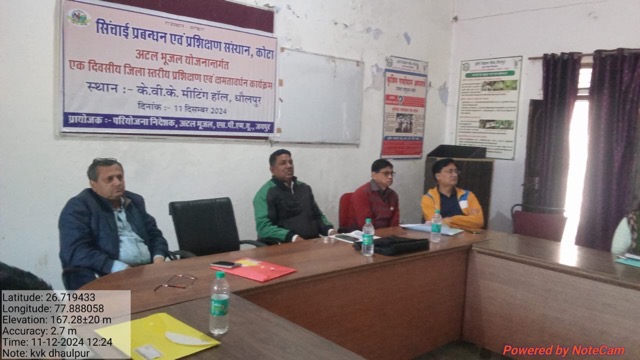Dholpur, Dec 12 : The Irrigation Management and Training Institute, Kota, organized a district-level training and capacity-building workshop under the Atal Bhujal Yojana at the Krishi Vigyan Kendra (K.V.K.) Meeting Hall in Dholpur. The event, coordinated by the Project Director of Atal Bhujal, S.W.R.P.D., Jaipur, aimed to address the pressing issues of water scarcity and groundwater depletion. Sanjay Kumar, the Chief Guest from the Manjari Foundation, underscored the importance of community-driven initiatives and inter-departmental collaboration to improve groundwater levels and ensure sustainable water management across Rajasthan.
Addressing the gathering, Chief Guest Sanjay Kumar emphasized the crucial role of collaboration between communities, government agencies, and civil society in addressing groundwater issues. He highlighted the importance of active participation from all sectors to ensure that the program’s goals are transformed into tangible, on-the-ground outcomes, moving beyond theoretical concepts.
These workshops, held across the participating districts, demonstrate Rajasthan’s unified commitment to sustainable water management. Through capacity building and collaborative efforts, the Atal Bhujal Yojana is steadily advancing toward creating resilience against water scarcity and safeguarding essential groundwater resources.

The Atal Bhujal Yojana, which has made significant strides across 17 districts and 1,141 panchayats, focuses on reversing the steady decline in groundwater levels. Now in its fourth year, the program is nearing its conclusion and aims to halt further depletion while enhancing groundwater reserves through community-led interventions. Gram panchayats play a crucial role in this initiative by developing detailed water management plans that address the supply-demand gap and promote sustainable conservation practices. These plans, developed with input from local communities, are submitted to the government for execution. The program adopts a convergence model, bringing together key departments, including Rural Development, Agriculture, Horticulture, Livestock, and Women and Child Development, to maximize its impact.

